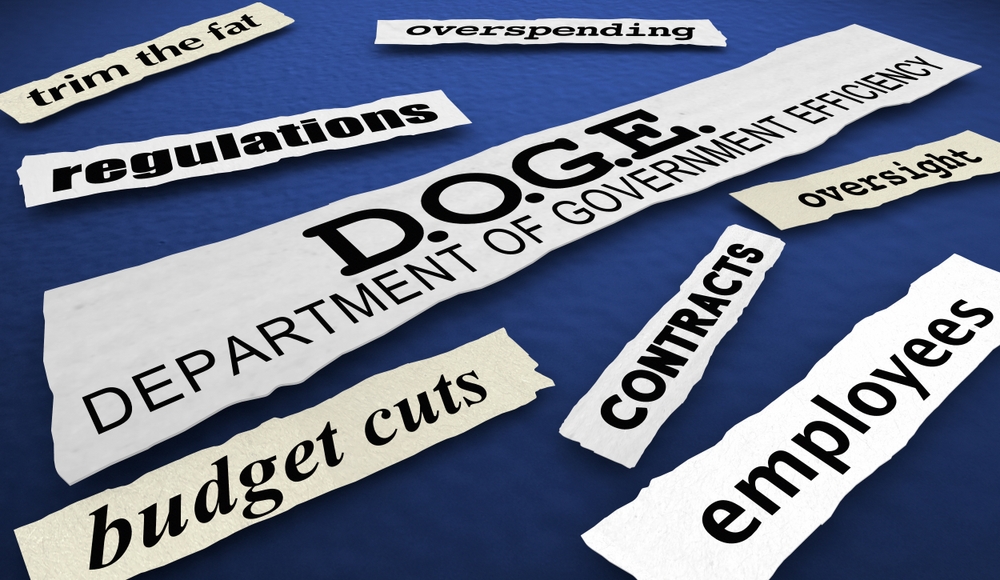DOGE on the Hill: Sniffing Out Waste in Congress

On President Trump’s first day in office, he issued an executive order establishing of the Department of Government Efficiency (DOGE). As of July 26, 2025, DOGE estimated that its actions and recommendations, including the cancellation of contracts and grants, asset sales, and workforce reductions, if fully implemented, would save $199 billion, or $1,236 per taxpayer. Member of Congress have introduced legislation to expand and formalize DOGE’s functions and mission.
Representative Cory Mills (R-Fla.) led the pack with his introduction on March 10, 2025, of H.R. 2006, the Department of Government Efficiency (DOGE) Act, which would codify President Trump’s Executive Order (EO) 14210. Rep. Mills noted in his press release on the bill that the requirement in the EO for each federal agency to create a dedicated team to work with DOGE to implement its initiatives and maximize workforce productivity “shall have the force and effect of law.” Rep. Anna Paulina Luna (R-Fla.) introduced H.R. 3072, the DOGE Codification Act of 2025, on April 29, 2025, which would permanently enact DOGE’s cost savings and regulatory changes into law.
To push more states to establish their own efficiency initiatives like Iowa and Florida have done, Rep. Claudia Tenney (R-N.Y.) introduced H.R. 2523, the State-Level DOGE Establishment Act, on March 31, 2025. The bill would prevent the distribution of certain discretionary funding to states that refuse to establish their own government efficiency entity. The entity would be required to make recommendations for maximizing the use of federal funding and report to DOGE on their progress.
Sen. Joni Ernst (R-Iowa) and Rep. Aaron Bean (R-Fla.), who are co-chairs respectively of the Senate and House DOGE Caucuses, introduced S. 1991 and H.R. 4311, the DOGE in Spending Act. The legislation would require every authorized payment submitted to the Treasury disbursement system by a federal agency to contain a description of its purpose and a budget justification which would become visible to the public within 30 days, with the exclusion of sensitive payments. Council for Citizens Against Government Waste President Tom Schatz, praised Senator Ernst for her efforts, noting that, “The increased spending transparency will help identify and eliminate waste, fraud, abuse, and mismanagement.” The bill would require federal agencies to provide needed data to the Treasury’s Do Not Pay system before payments are made, which will provide the information needed to prevent improper payments and stop fraud at the outset.
Rep. Chip Roy (R-Texas) introduced H.R.3733, the Make DOGE Permanent Act, introduced, on June 4, 2025. The bill would amend the Federal Funding Accountability and Transparency Act of 2006 to provide Congress with real-time information on federal awards and payment information sent to recipients of federal assistance and federal employees. Current law allows federal agencies 30 days to upload disbursement information to USASpending.gov, but with access to this tool, Rep. Roy said that members of Congress would gain unprecedented real-time access to invoices of federal grants and disbursements of at least $25,000.
Congress should continue its work to root out waste, fraud, abuse, and mismanagement in the government. The bills that have been introduced to codify DOGE’s actions are a great next step now that the President’s first recissions package and the One Big Beautiful Bill have been signed into law.
-G.K. Do
